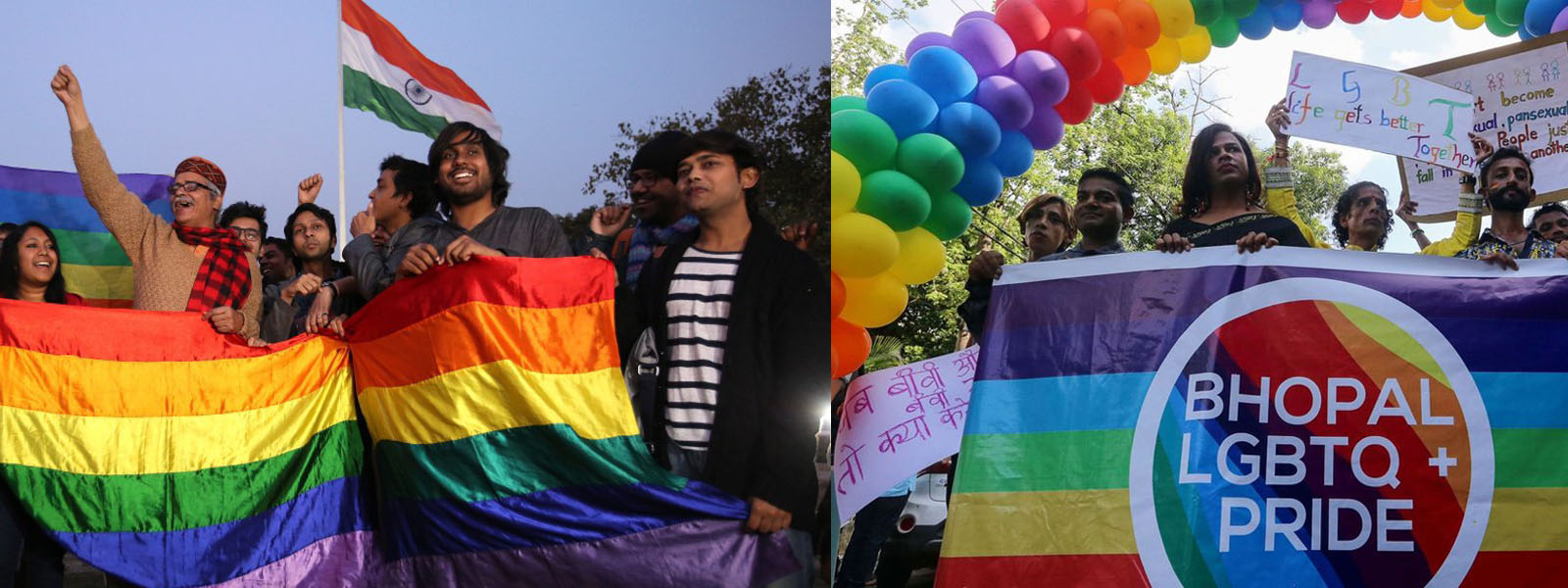.webp)

Gay sex is no longer a crime in India
Colombo (News 1st) - In a historic verdict, India's Supreme Court ruled that gay sex is no longer a criminal offence in the country.
The ruling overturns a 2013 judgement that upheld a colonial-era law, known as section 377, under which gay sex is categorised as an "unnatural offence".
It is a 157-year-old colonial-era law which criminalises certain sexual acts as "unnatural offences" that are punishable by a 10-year jail term.
The law punishes, in its own words, "carnal intercourse against the order of nature with any man, woman or animal".
While the statute criminalises all anal and oral sex, it has largely affected same-sex relationships.
India's gay and transgender communities have fought long and hard to strike down the law.
Human rights groups have said police have used the statute to harass and abuse members of the LGBT community.
Equal rights activists have also argued that the very existence of such a law was proof of discrimination based on sexual orientation.
Why is this verdict so significant?
India's gay and transgender communities have fought long and hard to strike down section 377, as the law is known. "How strongly must we love knowing we are unconvicted felons under Section 377? My Lords, this is love that must be constitutionally recognized, and not just sexual acts," Menaka Guruswamy, the lawyer for the petitioners, had told the Supreme Court in July when it began hearing the case. But it is still too early to say what this can translate to in the longer term. The judges explicitly said that they only ruled on the constitutional validity of section 377 and were not looking at it in terms of other rights such as those related to marriage or inheritance. "Criminalising carnal intercourse is irrational, arbitrary and manifestly unconstitutional," Chief Justice Dipak Misra said while reading out his judgement. Another judge, Indu Malhotra, said she believed "history owes an apology" to LGBT people for ostracising them.Other Articles
Featured News





.png )





-797731_550x300.jpg)




-797273_550x300.jpg)


















.gif)